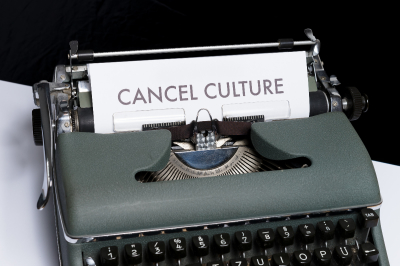The death of God is driving cancel culture

Political polarization has reached an all-time high, depression and anxiety have crippled the youngest generations, and more Americans than ever object to once-normative social values like having children or engaging with one’s community. The generational divide on these data points is particularly stark.
If we want to reverse some of these trends, or at least decrease the likelihood of screaming matches over Thanksgiving dinner, we need to look at the problem beneath the problem. In an increasingly secular world, we’ve lost the rituals that remind us of our fallibility and teach us how to forgive, be forgiven and try again.
Not only do Americans 30 and under, on average, have increasingly little in common with their predecessors; they are more militant than ever in mandating conformance with their social morals.
Jonathan Haidt, in a recent study published by the Manhattan Institute, painted a grim future. Americans aged 18-25 are substantially more likely to support retaliatory firings for legal speech. Two-thirds of those in this group supported Google’s decision to fire James Damore for questioning whether discrimination explains the underrepresentation of women in computer programming. By contrast, nearly two-thirds of those over 50 opposed the decision.
At the same time, 36% of 18-29-year-olds identify as “religious nones” — atheists, agnostics, or “nothing in particular,” making them the least religious generation on record.
Most religious teachings have at their core an idea of sin and repentance — in simple terms, the notion that we regularly fall short of some objective standard and have to continually pick ourselves up, admit where we went wrong, reorient ourselves to the good, and try again. For most of its history, Western Culture has rested on a social fabric woven with this principle. Even amid deep religious divides, Muslims, Jews, Protestants and Catholics maintain a version of this doctrine.
The rise of the “nones” is concerning not just for the proselytizers but because it can undermine the first principle of wisdom — the acknowledgment of one’s own finitude and ignorance and the simple fact that, in all likelihood, the person you are talking to knows something you don’t.
But more than that, because until recently most people were religious, most people were habituated to the practice of repentance. When embedded in a broader system of failing and reconciliation, one’s own mistakes and the shortcomings of one’s neighbors need not come as catastrophic shocks. In a religious society, the basic assumption is that people are messing up all the time. Because of that, communities have a road map for moving forward, patching wounds, and reintegrating with the community after a rift.
Without these rituals, we are left only with excommunication. When we aren’t conditioned to look for the plank in our own eye, intellectually or morally, before removing the speck from our friend’s, we are left with self-righteous militancy.
You transgress one of my social values? You should be fired.
You won’t assent to my position on a given topic? You should be de-platformed.
You debate my sincerely held beliefs? You’ve committed violence against me.
It is difficult to overemphasize the magnitude of this shift. Looking for one’s own failures and willingly acknowledging them in humility does not come naturally. It takes years of practice and social reinforcement. Add to this a culture militant in its search for social transgressions and ruthless in its persecution of them, and you can begin to understand our historical moment.
Most of us are blissfully unaware of our own intellectual blind spots, ethical lapses and character flaws while being outraged when the failures we don’t see in ourselves manifest in those around us.
When we don’t consider ourselves as needing gentle correction and forgiveness, we aren’t as willing to provide it for others, and we enter a vicious cycle.
In the words of Lebanese philosopher and diplomat Charles Malik, “Repentance presupposes the possibility of forgiveness; for if one, although he recognizes his error and is genuinely sorry for it, should never be able to disentangle himself from its smear, how could he ever turn a new leaf?”
In an increasingly complex and polarized world, where we disagree more and more vehemently about once unanimously held dicta, the virtues of intellectual humility, repentance and reconciliation are more important than ever. Perhaps all of us, religious or not, should spend some time learning from the rituals that once held us together.
Liza Ashley is Associate Director of the Charles Malik Institute at the Philos Project. She regularly writes and speaks on topics relating to religion, culture, and foreign policy.




























